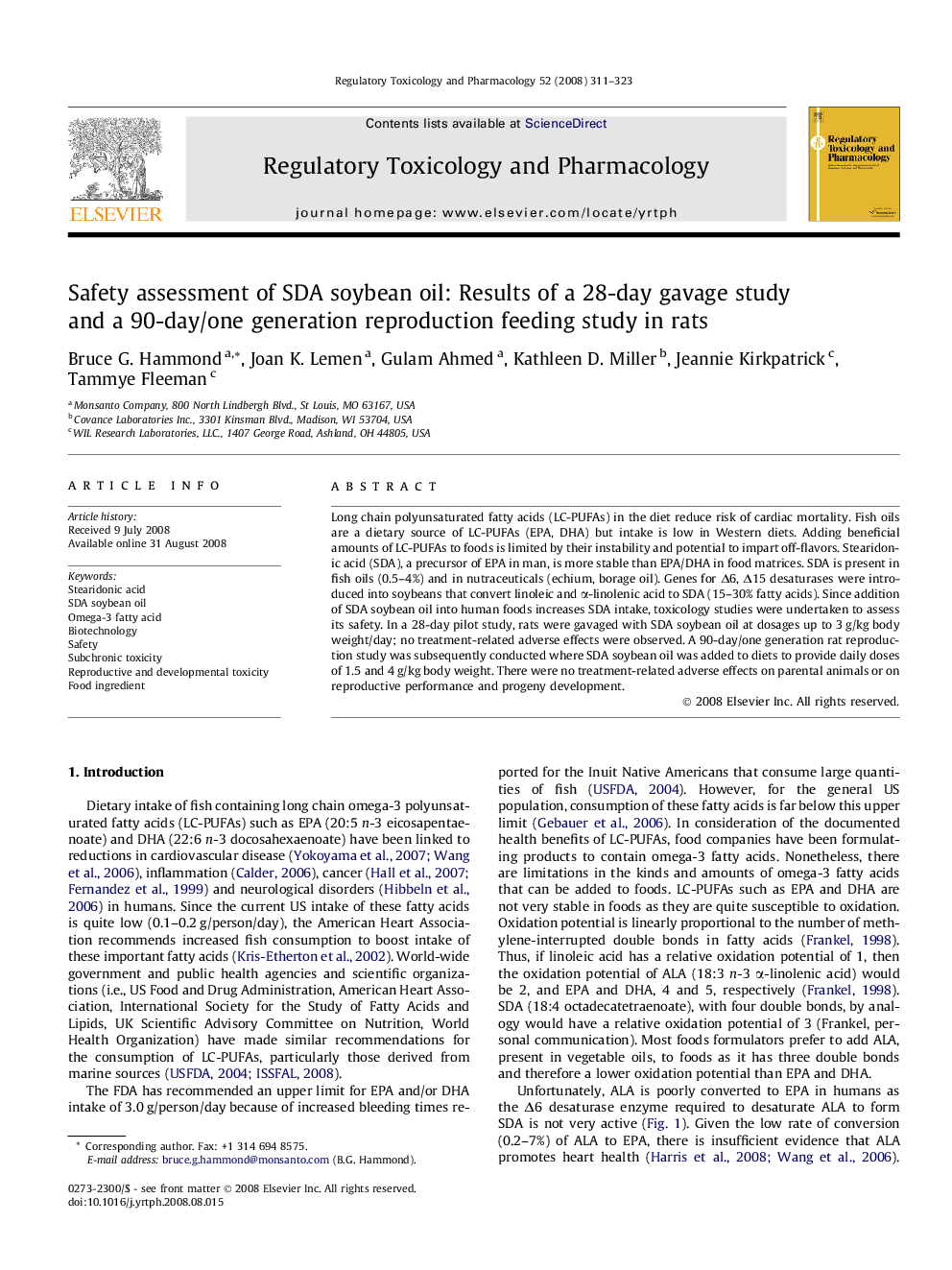| Article ID | Journal | Published Year | Pages | File Type |
|---|---|---|---|---|
| 2592989 | Regulatory Toxicology and Pharmacology | 2008 | 13 Pages |
Abstract
Long chain polyunsaturated fatty acids (LC-PUFAs) in the diet reduce risk of cardiac mortality. Fish oils are a dietary source of LC-PUFAs (EPA, DHA) but intake is low in Western diets. Adding beneficial amounts of LC-PUFAs to foods is limited by their instability and potential to impart off-flavors. Stearidonic acid (SDA), a precursor of EPA in man, is more stable than EPA/DHA in food matrices. SDA is present in fish oils (0.5-4%) and in nutraceuticals (echium, borage oil). Genes for Î6, Î15 desaturases were introduced into soybeans that convert linoleic and α-linolenic acid to SDA (15-30% fatty acids). Since addition of SDA soybean oil into human foods increases SDA intake, toxicology studies were undertaken to assess its safety. In a 28-day pilot study, rats were gavaged with SDA soybean oil at dosages up to 3 g/kg body weight/day; no treatment-related adverse effects were observed. A 90-day/one generation rat reproduction study was subsequently conducted where SDA soybean oil was added to diets to provide daily doses of 1.5 and 4 g/kg body weight. There were no treatment-related adverse effects on parental animals or on reproductive performance and progeny development.
Keywords
Related Topics
Life Sciences
Environmental Science
Health, Toxicology and Mutagenesis
Authors
Bruce G. Hammond, Joan K. Lemen, Gulam Ahmed, Kathleen D. Miller, Jeannie Kirkpatrick, Tammye Fleeman,
